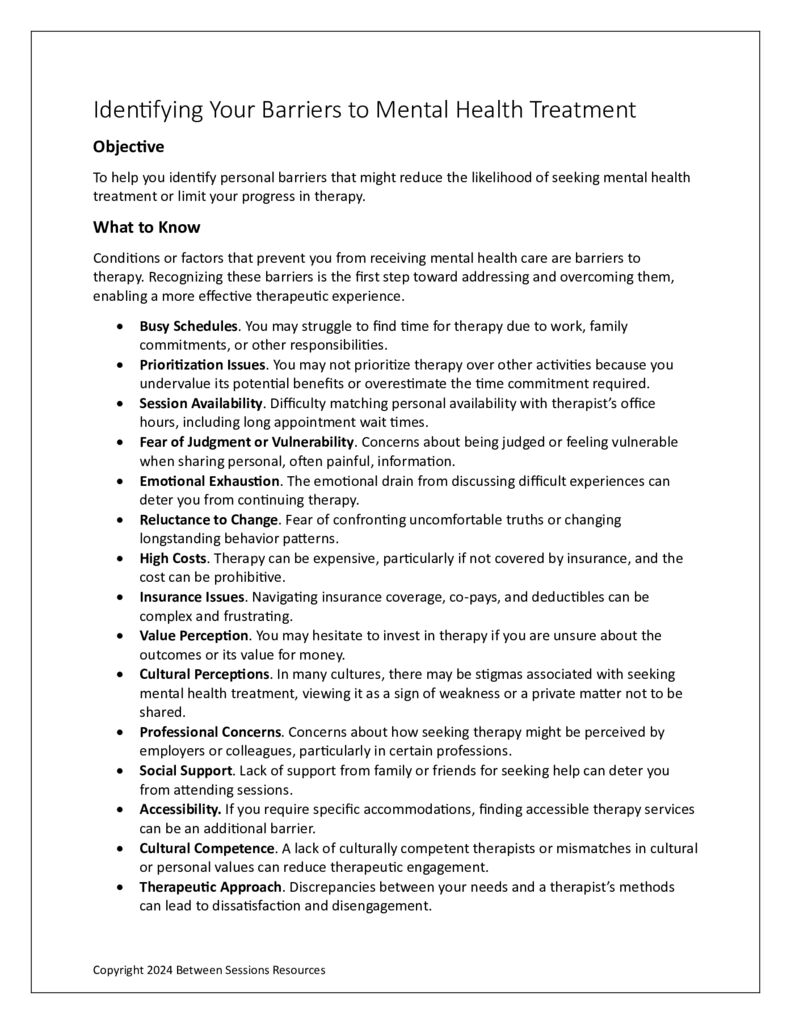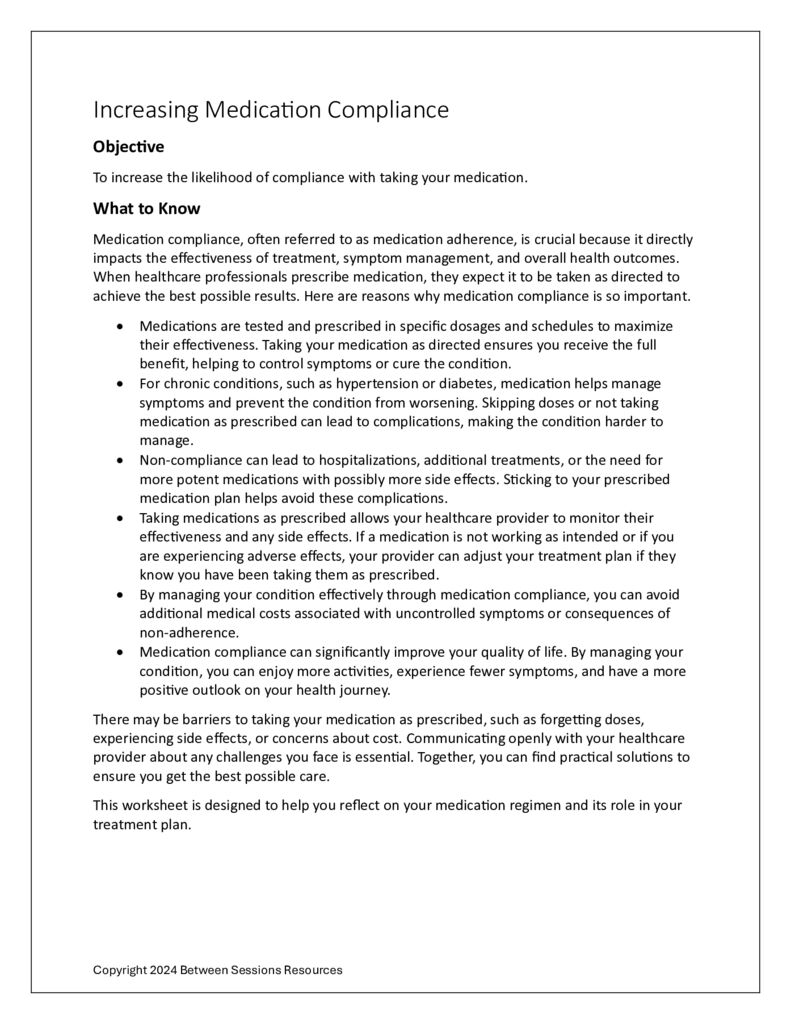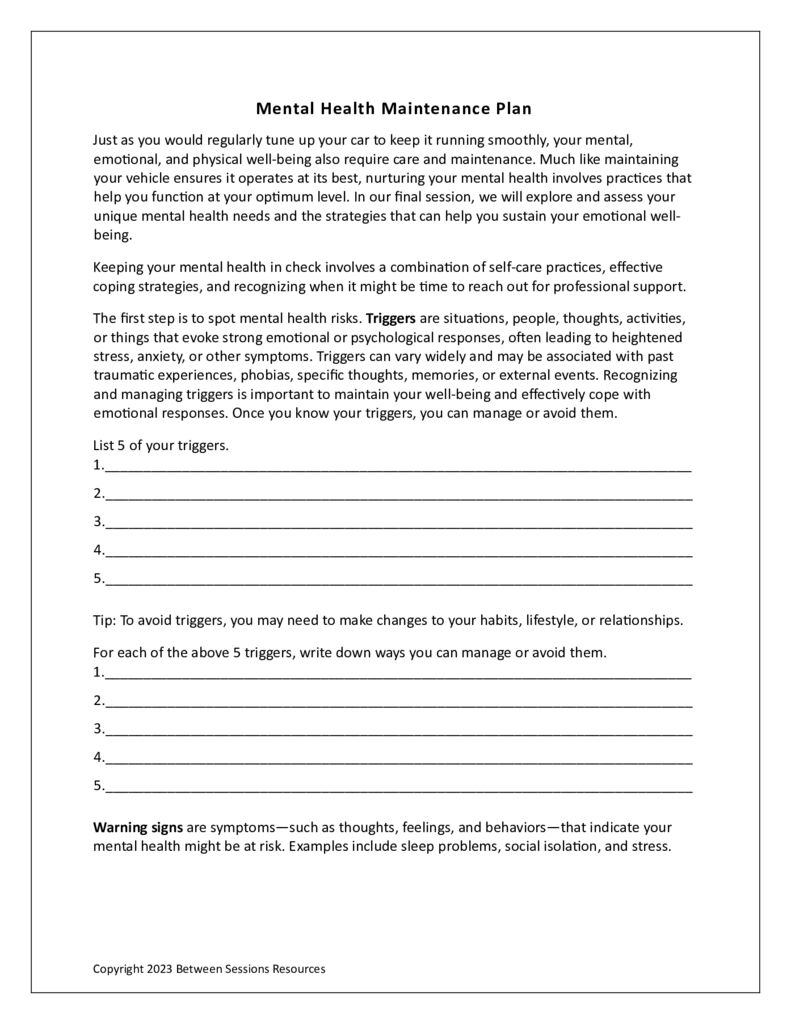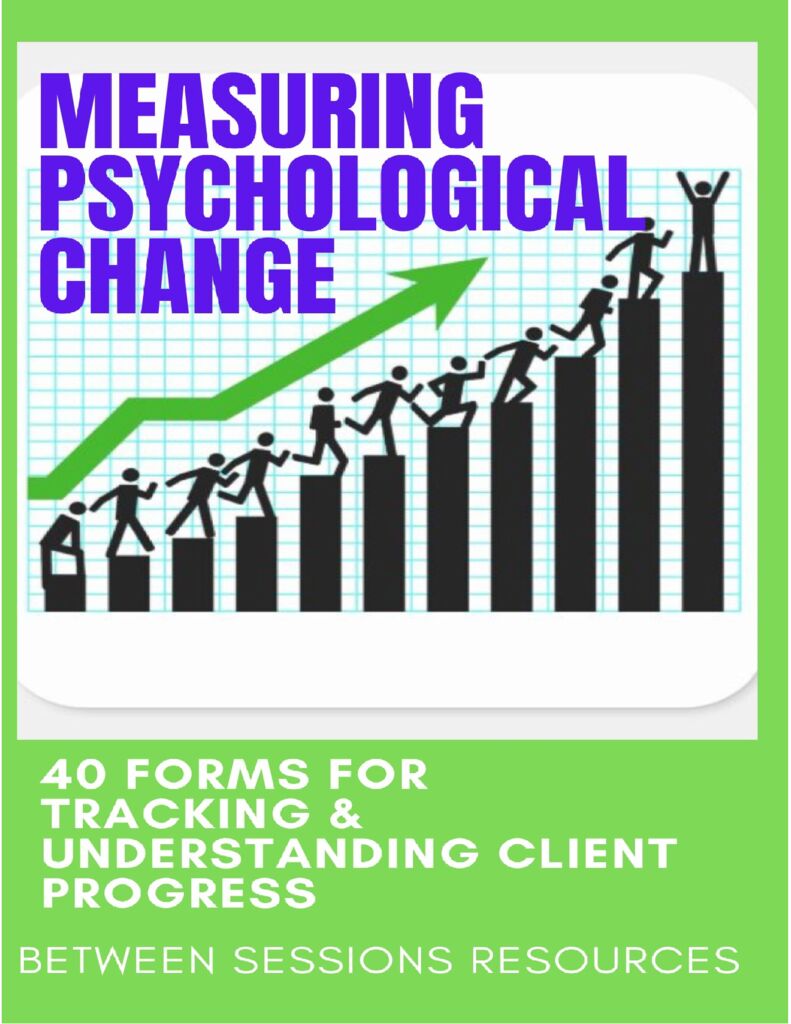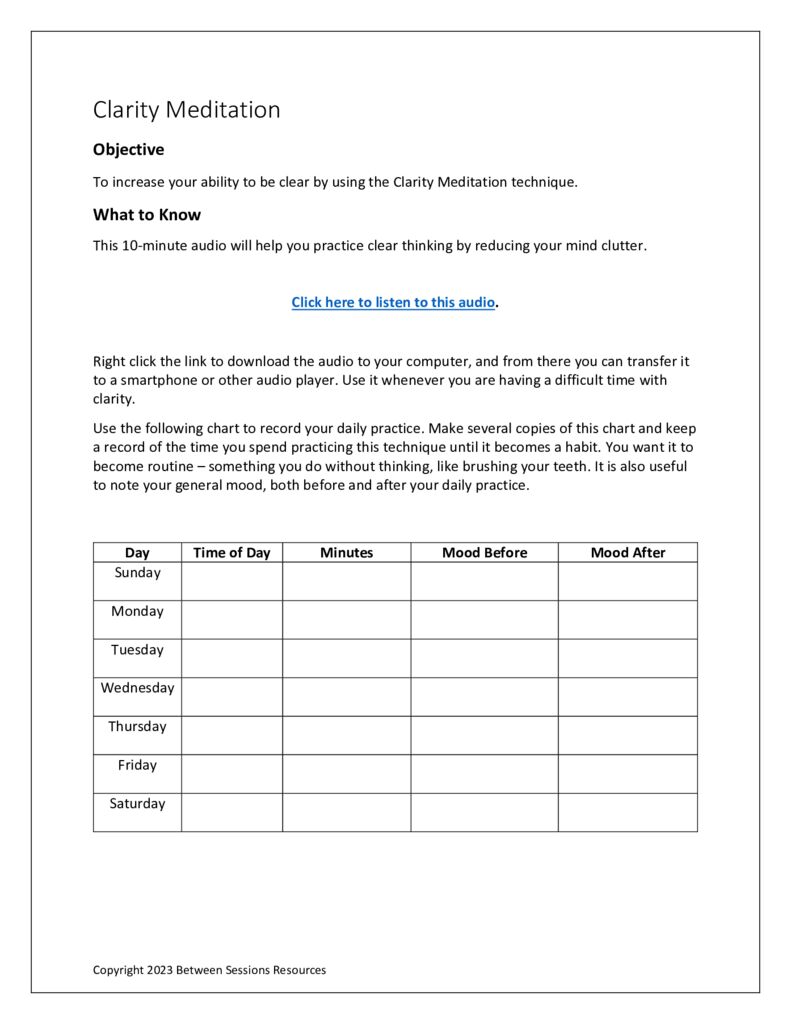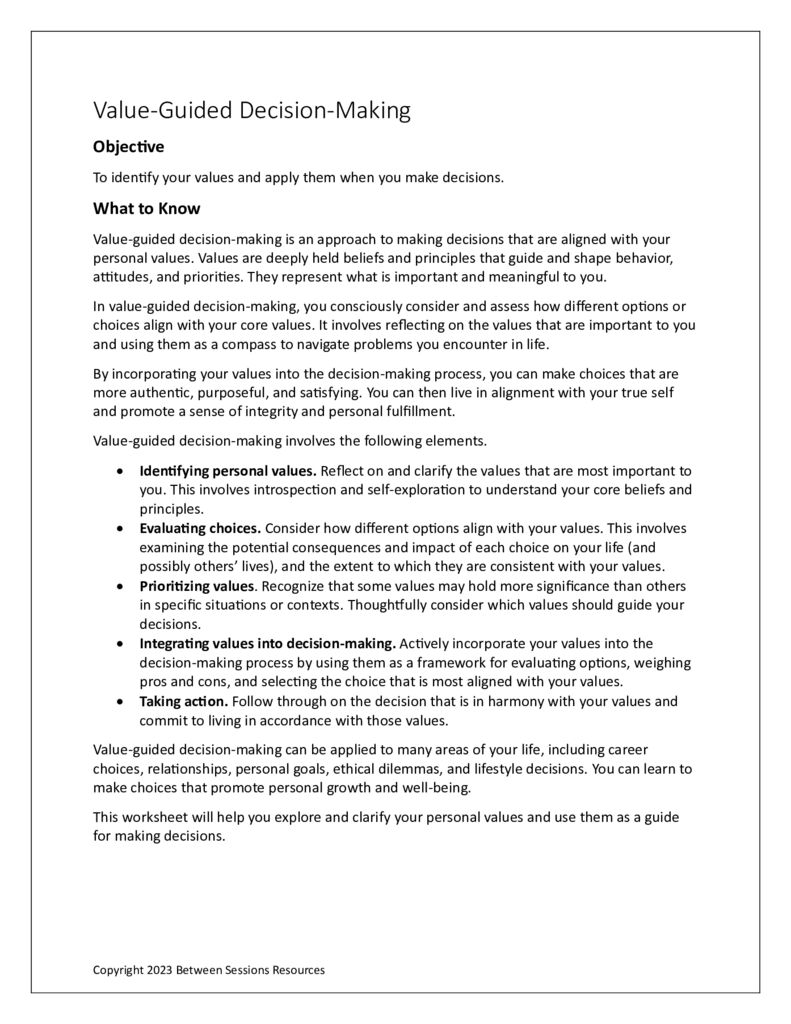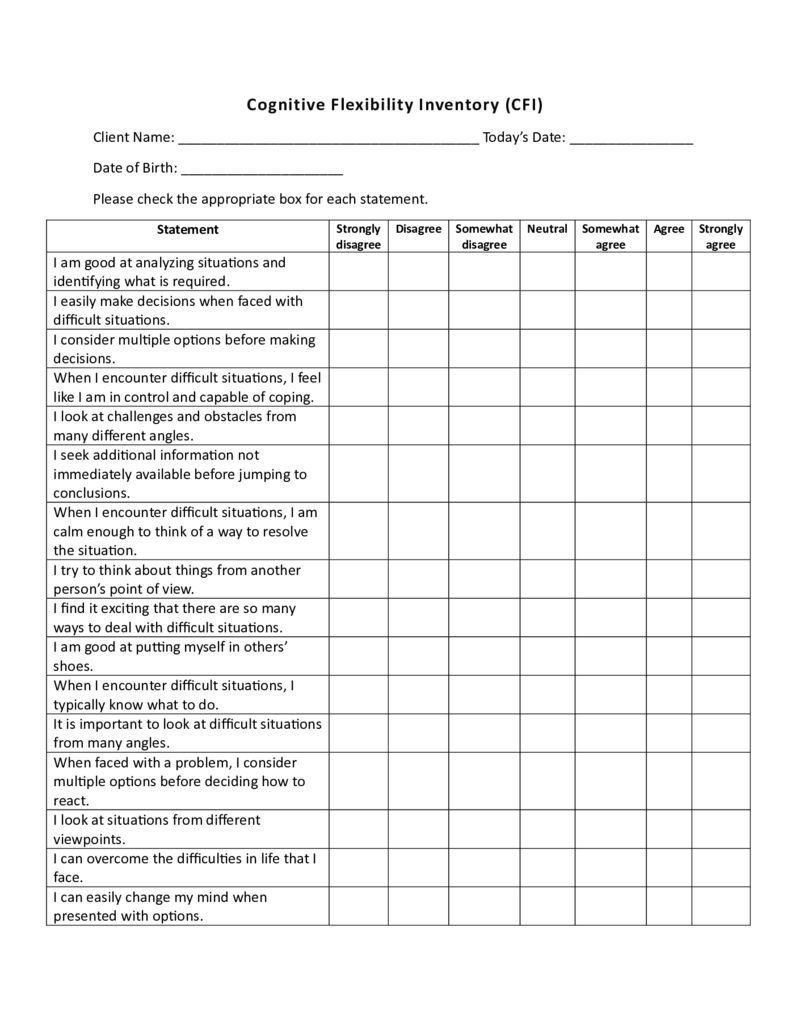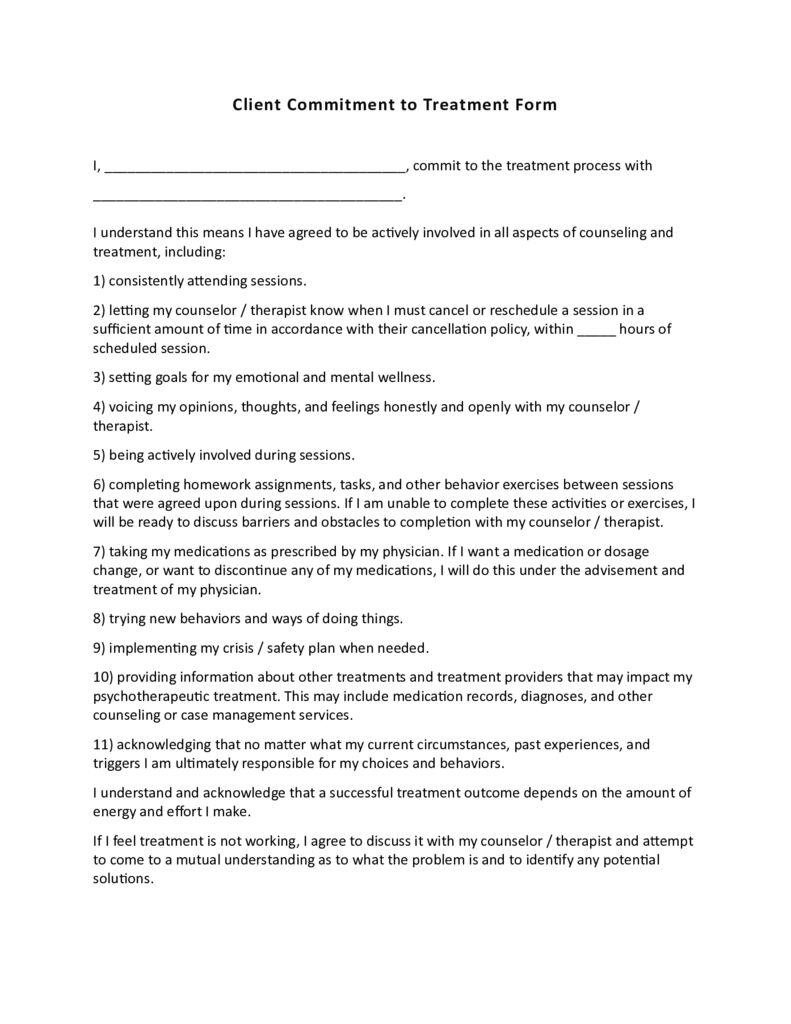This form can be an important tool in providing continuity of treatment. The form asks clients to review what happened in a session within 24 hours, thinking about the focus of the session, the most important things that were talked about, feelings expressed, topics that were difficult, and so on. The second part of the form asks clients to think about what they want to talk about in the next session. There is also a space for clients to rate their mood each day. (0924, homework assignment, therapeutic alliance, resistant clients).
Elections can trigger strong emotions, especially stress and anxiety. This worksheet gives people 7 strategies to deal with the stress and anxiety that can be triggered during the time of an election. (0724, stress, anxiety, election)
This worksheet is intended to help people identify issues or concerns that might keep them from seeking help. These could range from the cost to a lack of social support, to busy schedules. People are then asked to consider how they might overcome these barriers. (0424. resistance, wellness)
As many as 50% of adults don’t take their prescribed medication correctly or at all. This leads to thousands of premature deaths and tens of thousands of people suffering from treatable conditions. This worksheet is designed to help people become more aware of the importance of medicine adherence as part of an overall wellness program. (0424. medication, side effects, compliance, wellness)
Keeping your mental health in check involves a combination of self-care practices, effective coping strategies, and recognizing when it might be time to reach out for professional support. This worksheet helps people keep track of various wellness practices as well as identify the triggers and warning signs of mental health problems. (1223, wellness)
This 10-minute audio is designed to help people clear their heads and develop their focus. (0623, audio, cognitive therapy, CBT)
Value-guided decision-making can be applied to many areas of your clients’ lives, including career choices, relationships, personal goals, ethical dilemmas, and lifestyle decisions. This worksheet can help them identify their values and apply them when they make decisions. (0523, decision-making, values, problem-solving)
The Cognitive Flexibility Inventory (CFI) is a self-report measure to monitor how often individuals engage in cognitive behavioral thought-challenging interventions. Cognitive flexibility enables people to think adaptively when encountering stressful life events, and it is a core skill that helps them avoid becoming stuck in maladaptive thinking patterns. (0423, assessment, cognitive flexibility, executive functioning)
This form is intended to help understand that therapy can only be successful when they commit to the process. The contract format spells out specific behaviors expected from the client like showing up at sessions on time, trying new behaviors, using a safety or crisis plan when needed, and so on. (0423, contract for therapy services, commitment, motivation)



